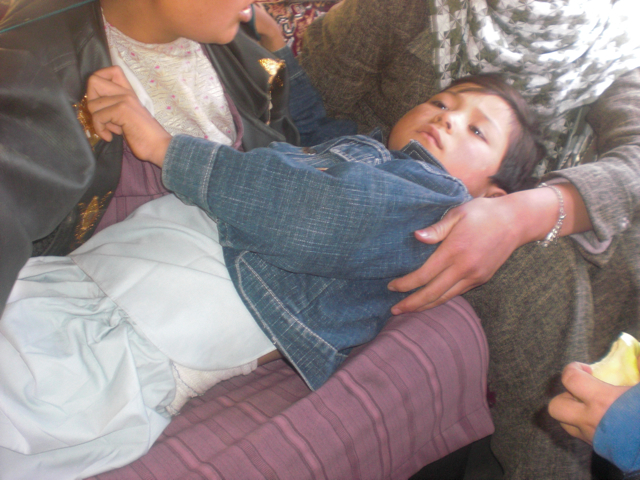
"Scale" is a term frequently pondered in international development circles in regards to whether a particular organization can have real impact in identifying solutions to intractable global problems, like poverty alleviation. It's jargon that means it's possible to apply a potential approach, simultaneously, across large numbers of people. Scale equates to large. While large brings big resources to bear, it necessitates a top-down approach.
I would argue that transformational change comes from the bottom -- up. It's a grassroots phenomenon. Real change requires the long-term buy-in and engagement of individuals, families, and communities. It means local implementation -- by neighbors, village elders, and clan -- rather than by transitory expat experts. One of the most relevant by-products of a grassroots approach is that local capacity gets created de facto.
In struggling countries like Afghanistan, lack of developed human capital is the most significant impediment to progress, other than, of course, corruption. That's because a deficit of work and life skills trumps a lack of funding. Ironically, rampant corruption, the 800 pound gorilla in international development, largely results from the fire hose of big developed-country money being indiscriminately sprayed around developing countries.
To effect real impact, the reasons for change and the methods used to accomplish it, must be clear and understandable to the people directly involved. By definition, it's personal. And personal means small and local. Yet, effectively executing on the ground at the household level is extremely hard to do. It's that last mile of delivery that can make the difference between the success and failure of a project, and between life and death.
Two years ago, Mustafa's extended family gathered for his aunt's wedding in the village of Dragon Valley, Bamyan, where ARZU has worked locally since 2005 (Interestingly, weddings are culturally significant, and the Taliban's banning of music during weddings was a particularly hated aspect of the regime's rule). The next day, while the women washed tablecloths at the river and the many kids played nearby, Mustafa and his cousins Abdullah, 8, and Nargis, 12, drifted away. It wasn't until dark when the families realized the three boys were missing. The village, like any town in America would, went into search mode. Abdullah's body was found floating face-down; Nargis walked away badly bruised; and Mustafa was trapped under a rock that had fallen from a masonry wall near the river bank, with his pelvis and both legs broken and what appeared to be potentially paralyzing spinal injuries. ARZU's health monitor, Shafiqa, well aware like everyone else of the tragedy, found Mustafa laying in shock in his family's mud brick house. She jumped into action -- transporting him to the local Bamyan Regional hospital three times, until being told they could do nothing more to help him.

Mustafa, 6 years old
But, Razia, ARZU's country director of Social Programs, simply refused to let this child go. Over the next few days, she found seats for Mustafa and his mother on a flight to Kabul, accompanied them, arranged for treatment at the national children's hospital, paying for blood tests and X-rays and bringing them food every day. (In Afghanistan, hospital food is an amenity not always provided.) Thankfully, Mustafa, although suffering severe trauma to his kidneys and back, was not paralyzed, and the antibiotics started at the hospital in Bamyan saved his life. Six weeks later, Razia drove this little boy and his mother back home and he walked from the car. Virtually every person in Dragon Valley knows the story of ARZU's life-saving intervention. Even in a country with so much violence, people rallied around the saving of one child's life, much like Americans would celebrate the life of a child pulled to safety from a well. My work with ARZU points out over and over the shared humanity that transcends cultural differences.
The international community has come under sharp criticism by Afghans, who see little local impact from the billions of dollars poured into Afghanistan from the top down since 2002. If you're destitute and desperate to put food on the table, you just don't much care about master plans and strategies developed thousands of miles away. As Joseph Stalin put it, "The death of one is a tragedy; the death of many is a statistic."